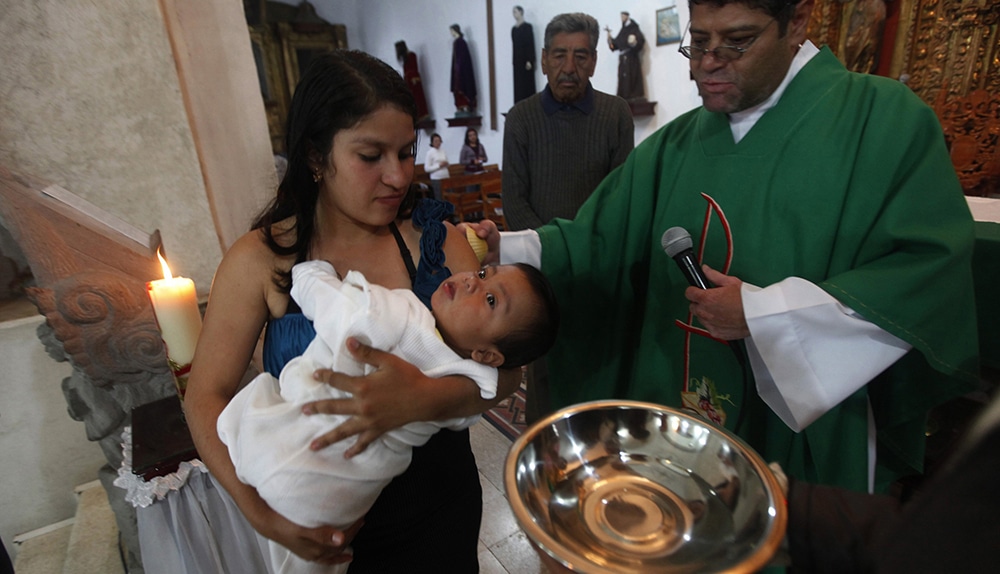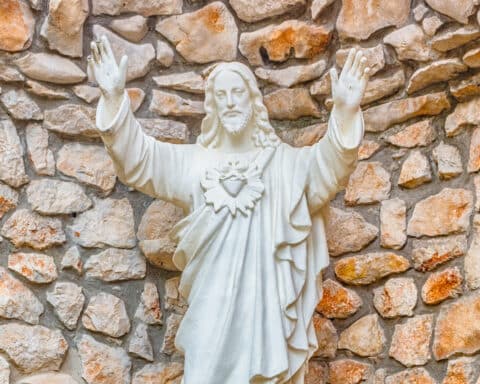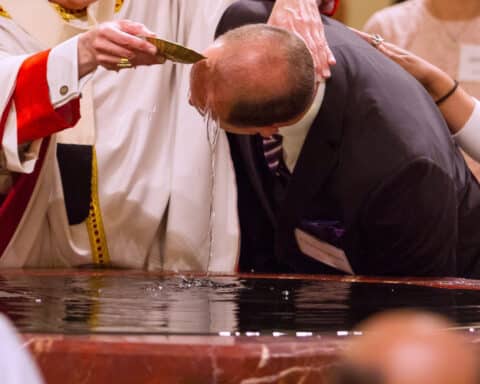
— Nancy Jackovich, via email
Answer: A matter like this must be understood and assessed in terms of culture. The naming of a male child as “Jesus” is common in the Hispanic cultures of Central and South America. In that setting, it is not offensive at all. Throughout Christendom, many name their children after saints as a way to honor them and bring the intercession and blessings of those patrons. Again, this is seen as honorific to the saints who are named, and that is also the case in Hispanic cultures with the name Jesus. While European and Northern American culture find the practice of bestowing the name of Jesus strange or even offensive, we must understand that no irreverence is intended; in fact, honor is the intention.
Mass attire
Question: With COVID-19, masks are now becoming fashion statements. Is it appropriate to wear one to Mass featuring Disney cartoon characters, professional sports teams and rock band logos? Some parishioners feel that it’s a disrespectful breach of church etiquette, while others don’t see a problem.
— Vincent J., Sherman Oaks, California
Answer: Displaying slogans, whether on T-shirts, masks or the wearing of buttons, is something to discourage. Holy Mass is not the place to “stand out” or engage in personal display. The focus is on God and the worship and praise that is due to him who is the Lord. Some of these slogans and displays are merely worldly, depicting Disney figures, cultural icons, sports heroes, etc. Some are political statements or endorsements of candidates. However, exulting worldly notions or icons in the sacred liturgy is a distraction and unbecoming. Injecting political matters and candidates into the liturgy is usually divisive and offensive to some. In church, we seek to focus on what unites us: belief in the One and Triune God, and what he has taught. Hence, our clothing should be modest, without lots of display, and dignified.
All this said, most who show up with flashy T-shirts, masks, buttons or the like do not usually mean to be irreverent or worldly. Rather, they often reflect the fact that, in America, we have become extremely casual with clothing. We almost never dress up. Further, a kind of extroverted, self-expression in clothing is common today. Often, unusual things are exalted and considered fashionable — for example, jeans that appear tattered and have numerous holes and thread-bare areas. All of this influences the clothing choices of those who come to Mass.
What ought to be done is to inculcate a new understanding that holy Mass and church buildings are sacred and that this should affect how we dress. Modest suits and dresses were the norm through the 1960s. Some encouragement to return to such a demeanor must be coupled to a greater awareness of the holiness and dignity of the sacred liturgy. While clergy can remind the faithful, parents and other lay leaders must also do their part.
Fear of the Lord
Question: Why does so much of Scripture focus on fear? “Fear the Lord,” “have fear,” “know my fear.” If God is all loving, shouldn’t the focus be more on love?
— Michael R., Riverside, California
Answer: The fear that is counseled in Scripture is not merely a cringing fear of punishment (also called servile fear). Rather, it is also filial fear (the fear of a son or daughter) — a fear that holds God in awe and fears to offend him because of his great goodness and glory. Ideally, we move from the mere fear of punishment to a fear rooted in love of God. The act of contrition says, “I detest all my sins not only because I fear your just punishments, but, most of all, because they offend you, my God, who are all good and deserving of all my love.”
Note, however, that the fear of punishment, though imperfect, is also good and necessary. We ought never trivialize God or presumptively declare his mercy while we go on sinning. God’s presence simply cannot be endured by unrepentant or presumptive sinners. God must be respected and feared in this sense. Only by his grace can we hope to stand before him and endure his glory. By the fear of God, perfect or imperfect, we take God seriously and are rendered more apt to obey him. This is a very great gift and the beginning of all wisdom.
Msgr. Charles Pope is the pastor of Holy Comforter-St. Cyprian in Washington, D.C., and writes for the Archdiocese of Washington, D.C. at blog.adw.org. Send questions to msgrpope@osv.com.





